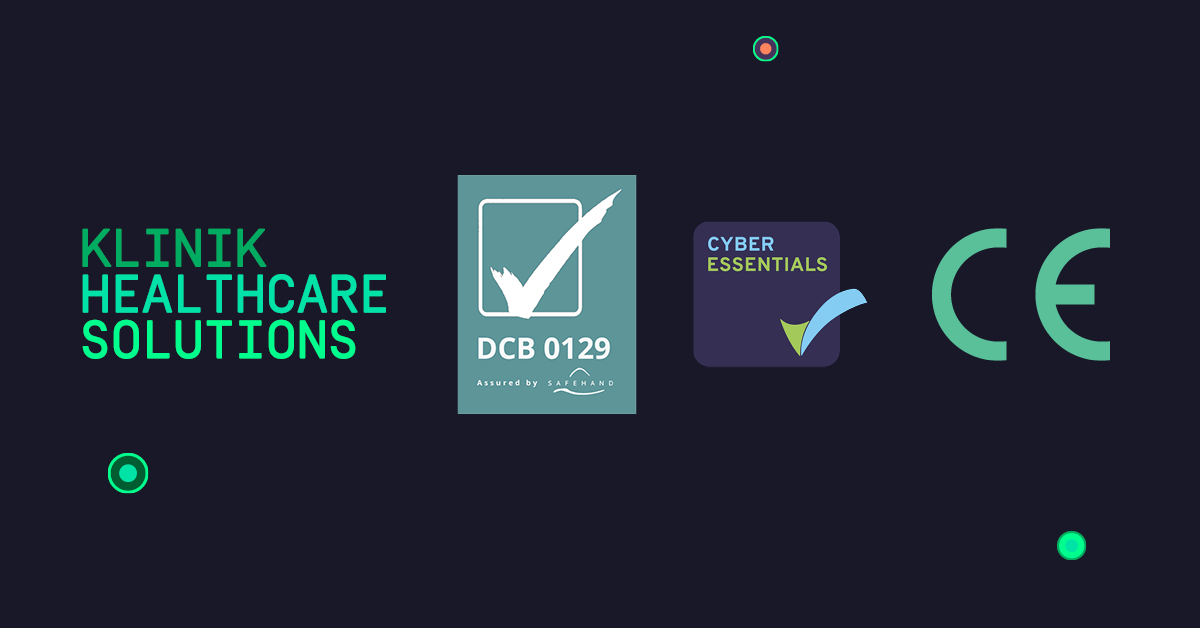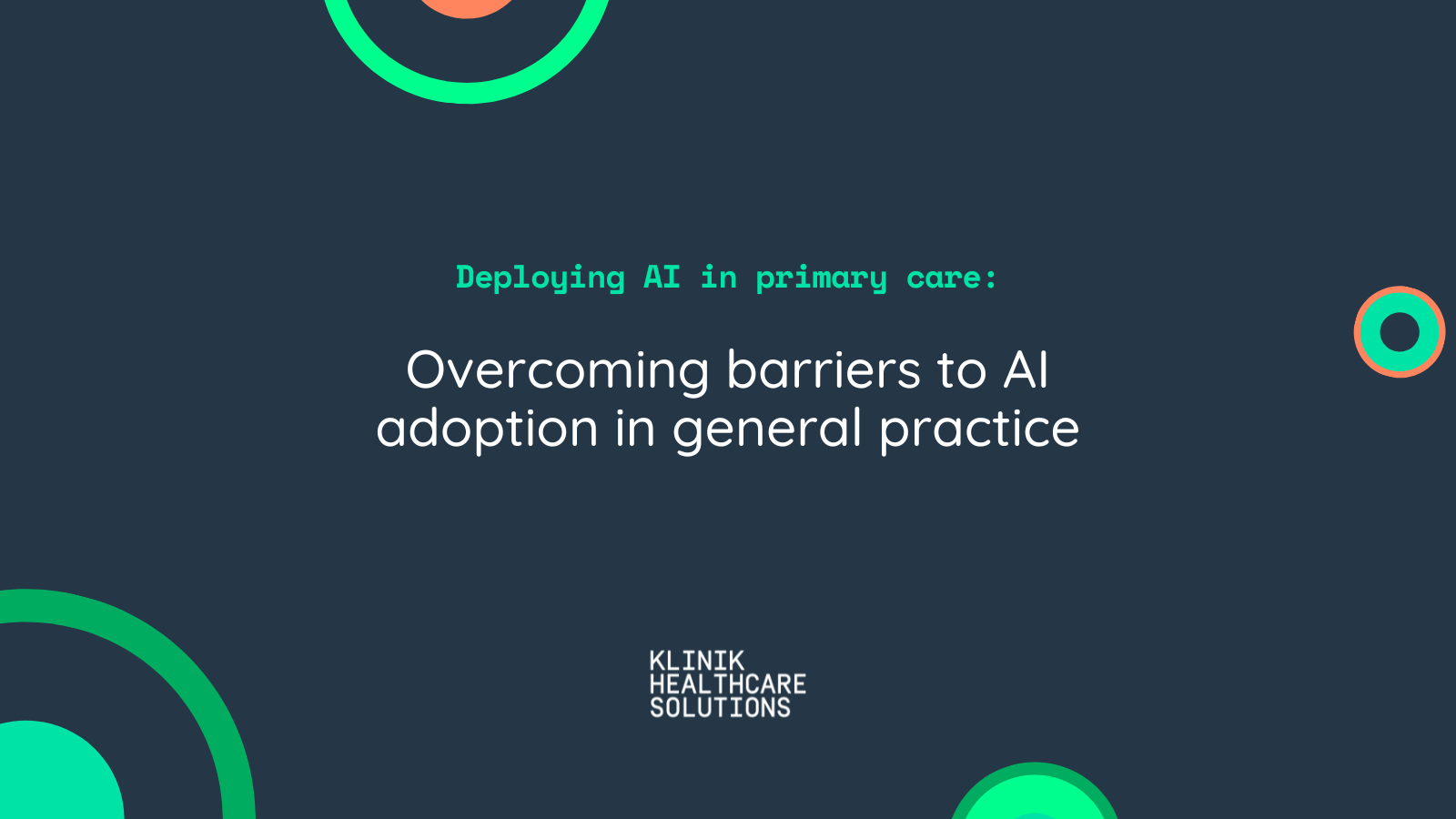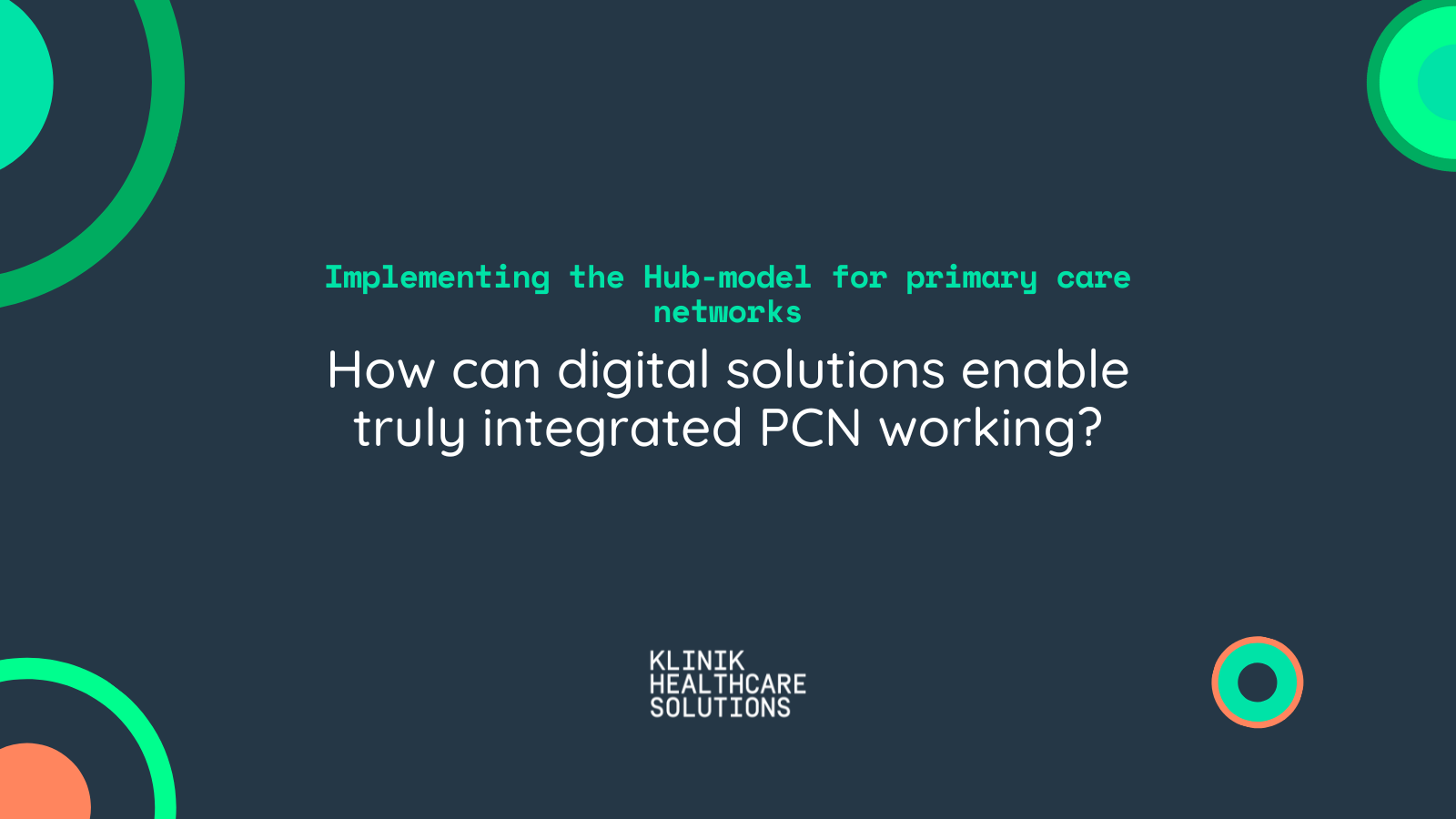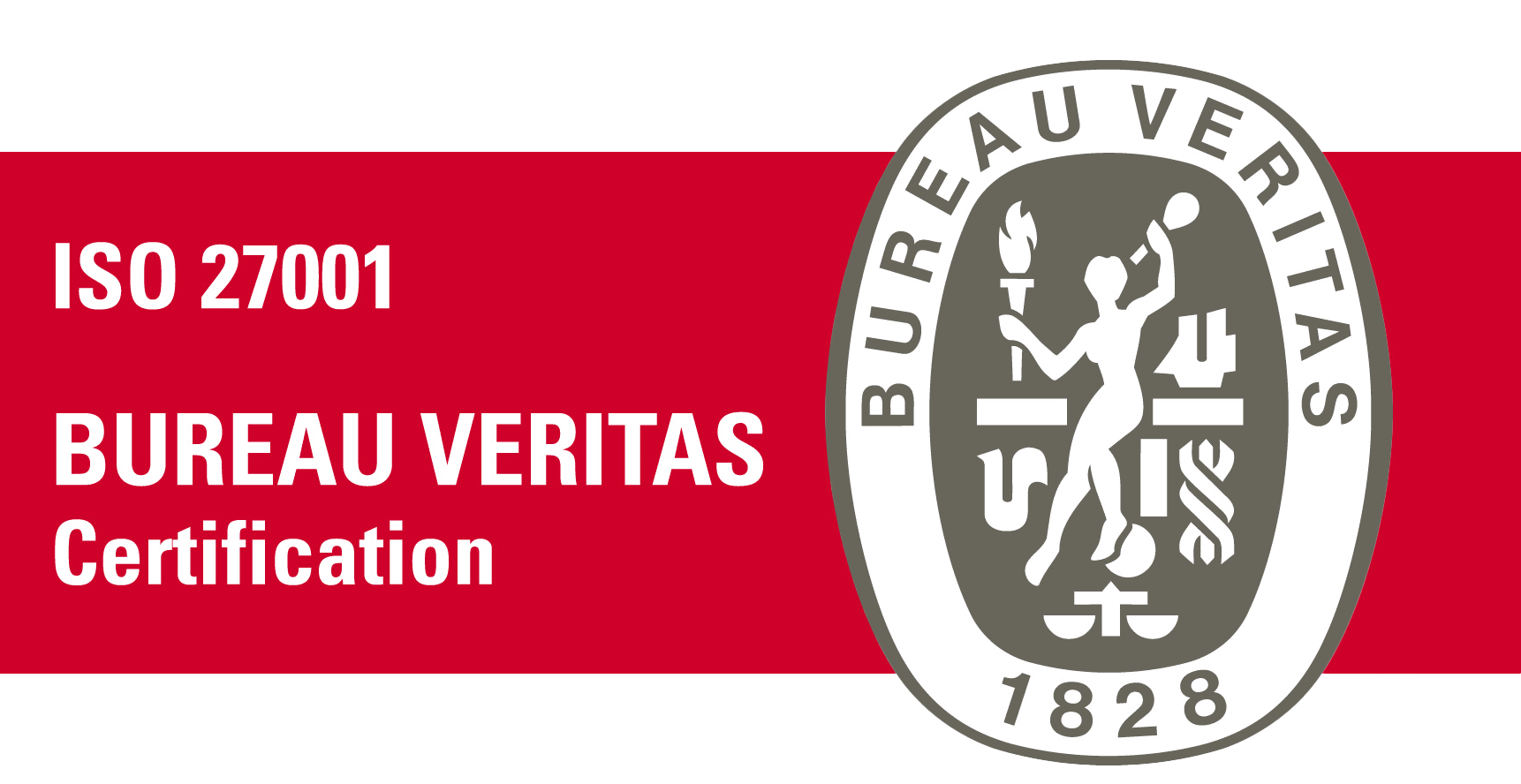Klinik takes safety by design to heart with DCB0129 compliance

Technology offers a wealth of opportunity to general practice, but how can doctors know which technology is safe? Working with experts, Klinik is taking a safety by design approach to ensure that its technology embeds clinical safety at its heart.
Ensuring the safety of new technology can be a challenge for general practice as it navigates its way through the rapid adoption of digital solutions.
As it is built by GPs, Klinik recognises the vital importance of using safe systems. That is why it has been working with Eric Bulwer, Clinical Safety Officer for Klinik and a Safehand Consulting associate, to achieve DCB0129 compliance.
The DCB0129 standard from NHS Digital is designed to help manufacturers of health IT software evidence that clinical safety has been appropriately managed for their products. The process culminates in a Safety Case that highlights what has been considered when manufacturing the product.
With DCB0129 compliance, GPs can be confident that they are working with a supplier that is taking clinical safety seriously.
Compliance also provides the foundation for GPs to comply with the corresponding DCB0160 standard. This helps organisations implementing such technology to do so safely and sustainably.
“We make sure our assessment identifies the key considerations that are transferred to the organisation implementing such systems as Klinik,” says Eric. “This gives them a great basis for starting their own safety work."
For example, Klinik has the technical ability to transfer patient enquiries to a new urgent designation caseload. However, it is up to the practice to supply staff to respond, as well as to train users on any new processes, and provide them with the right equipment.
With DCB0160, the GP will be aware of what needs to be done to address many of the hazards that may come from implementing a new system.
Taking a proactive approach to clinical safety
Awareness of standards, and capacity to undertake assessments, have historically been issues in the past. The new Digital Technology Assessment Criteria (DTAC) from NHSX - which requires suppliers and users to adhere to DCB0129 and DCB0160 - is helping to address this.
“DTAC is raising the profile of the standards,” says Eric. “It is encouraging to see clinical safety at its heart. Now, safety is being given the same kind of focus and importance as other areas such as security and information governance.”
This proactive approach is helping to promote the principle of safety by design. Rather than retrospectively inspecting the safety of an existing product, this principle puts safety at the heart of the development and implementation process.
“Proactive safety by design is the gold standard that every manufacturer should aim for,” says Eric.
“It makes the development and implementation process much less onerous and more efficient,” says Eric. “It means fewer battles over compliance around what has already been built, where potential safety-related issues might be identified. It also means that NHS implementers have the foundation for their own safety assessments. Reducing the time wasted investigating incidents that could have been designed out can also have a real impact.
How Klinik is embracing safety by design
Klinik - which is already CE-marked and Cyber Essentials accredited - is fully committed to the safety by design approach. As an online triage provider, we work with clinical safety experts when we design a new piece of functionality. This means that safety controls can be proactively built as the product is developed.
Take the ability for patients to upload their own pictures. Patients could choose to take pictures of wounds or skin conditions using their front-facing camera. However, such cameras can often employ post-processing algorithms to smooth out imperfections, making the generated images unsuitable to support a clinical consultation. For example, a GP would certainly not want a phone to attempt to ‘beautify’ an image of a patient’s rash! So mitigating this risk might involve including a warning to the patient to avoid the use of front-facing cameras and further advice to take pictures at multiple angles. Such controls can be factored in when designing how a system will support the use of patient-generated images.
Clinical safety teams also look at how a patient or user will experience a system, to help identify any parts of the workflow that could introduce a clinical risk. “We ask what could go wrong, and what could we put in place to prevent this” says Eric.
This approach is more productive for all involved. “It’s more enjoyable to create something safe in the first place, rather than go back and change things,” says Eric.
Klinik always wants to get things right the first time – that’s because we have GP blood running through our veins! We also want things to work for our users. We want to provide the best possible AI triage and patient flow software for all. Safety by design is fundamental to helping us achieve that mission.
Contact us to arrange a demo of how your practice could benefit from Klinik’s solution.








